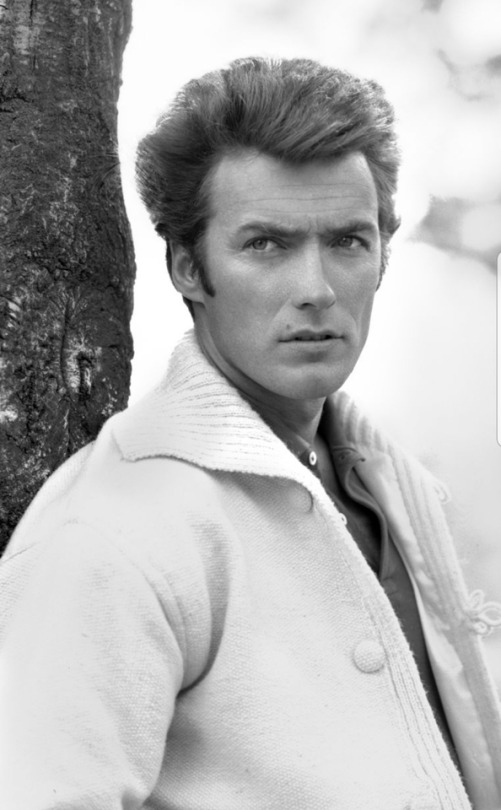Clint Eastwood is an American actor, director, and producer born in 1930. A Hollywood legend, Eastwood gained fame for his roles in iconic westerns like “The Good, the Bad and the Ugly” and the “Dirty Harry” film series. Transitioning to directing, he achieved critical acclaim for films such as “Unforgiven” and “Million Dollar Baby,” earning multiple Academy Awards. Eastwood’s career has been marked by his versatility as both an actor and filmmaker, leaving an indelible mark on the entertainment industry.
Eastwood’s childhood was shaped by the Great Depression, and his family’s financial struggles instilled in him a sense of resilience and determination. As a young man, he served in the U.S. Army during the Korean War, an experience that influenced his later portrayal of soldiers in films such as “Heartbreak Ridge” (1986) and “Flags of Our Fathers” (2006).
His journey into acting began with small roles in B-movies and television shows. Eastwood gained attention for his role as Rowdy Yates in the long-running television series “Rawhide” (1959–1965), which brought him widespread recognition. However, it was his collaboration with director Sergio Leone in a series of spaghetti westerns that catapulted Eastwood to international stardom.
The “Dollars Trilogy,” comprising “A Fistful of Dollars” (1964), “For a Few Dollars More” (1965), and “The Good, the Bad and the Ugly” (1966), established Eastwood as the epitome of the stoic, enigmatic antihero. His portrayal of the Man with No Name in these films became iconic, creating a template for the modern action hero and influencing a generation of filmmakers.
In the late 1960s, Eastwood ventured into Hollywood with “Hang ‘Em High” (1968), marking his first American Western. The film’s success solidified Eastwood’s transition from a television actor to a bona fide movie star. As he continued to explore diverse roles in films like “Coogan’s Bluff” (1968) and “Where Eagles Dare” (1968), Eastwood’s on-screen charisma and rugged charm captivated audiences.
The 1970s saw Eastwood’s evolution into a multifaceted artist. His portrayal of Harry Callahan in the “Dirty Harry” film series, starting with “Dirty Harry” (1971), showcased a tough, no-nonsense cop who became synonymous with Eastwood’s tough-guy image. The catchphrase “Go ahead, make my day” from “Sudden Impact” (1983) remains etched in cinematic history.
Amidst his success as an actor, Eastwood took a significant step into directing with “Play Misty for Me” (1971). The psychological thriller marked the beginning of Eastwood’s directorial career and demonstrated his ability to helm films that resonated with audiences. His directorial efforts would later earn him acclaim and numerous awards.
In 1992, Eastwood directed and starred in “Unforgiven,” a revisionist Western that explored the consequences of violence and the myth of the Old West. The film, which won four Academy Awards, including Best Picture and Best Director, showcased Eastwood’s matured approach to storytelling and his willingness to deconstruct traditional genres.
As the 1990s unfolded, Eastwood continued to explore complex themes in films such as “In the Line of Fire” (1993) and “The Bridges of Madison County” (1995). His directorial prowess earned him widespread recognition, and he became known for his efficient and economical filmmaking style. Eastwood’s dedication to authenticity and simplicity set him apart in an industry marked by excess.
The turn of the century saw Eastwood entering a prolific phase in his career. His directorial efforts, including “Mystic River” (2003) and “Million Dollar Baby” (2004), garnered critical acclaim and Academy Awards. “Million Dollar Baby,” in which Eastwood also starred, won four Oscars, including Best Picture and Best Director, solidifying his reputation as a master filmmaker.
In 2006, Eastwood directed a pair of World War II films, “Flags of Our Fathers” and “Letters from Iwo Jima,” each offering a unique perspective on the Battle of Iwo Jima. The films earned critical praise and showcased Eastwood’s ability to explore the human cost of war with nuance and sensitivity.
Eastwood’s later directorial work continued to span genres and themes. “Gran Torino” (2008) explored issues of racism and redemption, while “American Sniper” (2014) delved into the experiences of a Navy SEAL sniper. These films, along with “Sully” (2016) and “The 15:17 to Paris” (2018), reflected Eastwood’s ongoing exploration of real-life stories and contemporary issues.
Beyond filmmaking, Eastwood has been involved in various philanthropic efforts. He served as the mayor of Carmel-by-the-Sea, California, from 1986 to 1988, and his contributions to the cultural landscape extend beyond cinema. Eastwood’s dedication to the preservation of jazz music led to the establishment of the Clint Eastwood Collection at the Institute of Jazz Studies.
Clint Eastwood’s impact on the film industry is immeasurable. His career as both an actor and director has been characterized by a willingness to take risks, tackle diverse subject matter, and defy conventional expectations. Eastwood’s ability to navigate seamlessly between genres, from Westerns to dramas and thrillers, showcases his versatility and enduring relevance.
Clint Eastwood continues to be active in the film industry, both as an actor and a director. His contributions to cinema have left an enduring legacy, and his influence can be seen in the work of subsequent generations of filmmakers who admire his storytelling prowess and dedication to authentic filmmaking.
